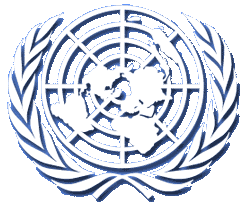|
At the dawn of the the XXI century, it appears that multi-stakeholder partnerships
are going to constitute the new and relevant means of international co-operation,
in particular in order to bridge the digital divide and to promote sustainable and
interdependent development. However, the concept remains vague,
its implementation delicate and uncertain, because there is no existing legal structure
adapted to its mission. The civil society and the private sector are now welcome
within the main international meetings, however the dialogue remains too informal
and inefficient because it is not structured. Civil society is very heterogeneous.
In many regions, there are critical local issues that must be addressed.
Local authorities aspire to play an international role, but their efforts are frustrated
because their organizations lack any form of recognition in regard to public international law.
Unless new collaborative structures are developed with very inclusive structures
to encompass the diversity of the global community, any initiative will be of limited impact.
Efforts at co-operation must go and meet the expectations of people and populations.
All the possibilities offered by Information and Communication technologies must be used while
giving due respect to cultural and linguistic diversity, while promoting freely shared knowledge
regardless of geographical distances. All these new possibilities must also be fully integrated
in the very manner new forms of international cooperation should function and operate.
To meet those urgent needs which have been clearly identified by many States and
by many components of the Civil society and the Private Sector,
a new agency of the United Nations is proposed,
that would use all the possibilities offered by new information technologies.
A detailed text of its Constitutive Charter is now available.
The study already carried out, which is based on what we learned through
the experience of the first phase of the WSIS, should allow to considerable savings
of time and work towards its adoption by the largest set of States,
while respecting cultural and linguistic diversity.
We invite all concerned actors to make suggestions,
as soon as possible. We summarize here the principal features of the Organization:
The goal of the Organization is the promotion and creation of multi-stakeholder partnerships.
Accordingly, it is necessary that all the players must be represented and be able to interact.
The States are represented in a General assembly which constitutes the sovereign body of the Organization.
The Intergovernmental Organizations (IGOs) are gathered within a Forum.
The stakeholders of the Civil society and the Private Sector are gathered within assemblies
which are called "Conferences ", a legal term synonymous with assemblies
in the texts of many constitutive charters.
These terms were intentionally selected for conveniently making a distinction between
the various types of assemblies and to clarify the text of the Charter.
Conferences by family and topic are established. For each conference,
a Presidency is established, made up of people which may be either elected or nominated,
either voluntary or employed, who may benefit from the status of international agents of
the Organization. For example, a "Conference" of Large Cities, is envisioned.
The presidency of this Conference is remunerated thanks to the contribution given to the Organization by the Cities.
This structure should make it possible to accommodate the international movement of the "Local Authorities "
by offering a diplomatic framework to this movement.
Business Associations and Trade Unions may also be able to benefit from similar environments.
All the Assemblies, Forums or Conferences may be virtual, a fact that considerably reduces
the operating costs of the Organization.
During the WSIS, the Assemblies, Forums, or Conferences could also take place during the
Regional PrepComs and/or Thematic events.
The Conference members may submit texts of resolutions or recommendations to the General Assembly of the States,
thanks to the assistance of a drafting 'help desk', which makes it possible to correct texts
written by neophyte players from the Civil society and Private Sector,
which does not abide by the customs and habits of international courtesy.
Thus we spare diplomatic missions from wasting precious time.
Within structured and constructive dialogues between the members of the Organization
(States, IGOs, the Civil society and the Private Sector), contacts can be made and discussions
should lead to the creation of new partnerships.
The primary focus of the Organization is to incite the rapid development of multi-stakeholder
partnerships between its members, hence a modern structure is envisioned,
reducing time and heavily bureaucratic procedures.
Detailed attention was paid to the implementation of a quick creation process of multi-stakeholders partnerships.
Each partnership project includes a constitutive charter. A project must be sponsored by at least two States,
and therefore it features, an intergovernmental aspect through its very creation procedure.
The implication of the States can be strong or could constitute only encouragement without responsibility.
A project is subjected to the approval of the general assembly. As soon as it is approved,
the partnership is recognized by the Member States of the Organization and can start to operate.
Consequently, it is not necessary to ratify a treaty, a slow and burdensome procedure,
in order to establish an endorsed multi-stakeholder partnership that exists in regards to international public law.
Each Partnership brings a financial contribution to the Organization which
enables the Organization to pay the Partnership Commissioners and to support the overall
Organization structure.
The financial resources of the UNMSP agency should be constituted not only by modest contributions
from States, contributions of some conferences with significant financial ressources,
like the Cities and the Business Community, but also by the contributions from
the sponsored partnerships that it helped to create.
Therefore, the financial resources of the organization should increase in proportion
to the number of partnerships that are created.
The operational costs of the UNMSP agency shall be very low in every aspect.
Meetings could take place during PrepComs and other WSIS events, and/or should rely on virtual conferencing.
The organization structure will rely heavily on "telecommuting" ie a networked and decentralized working system,
as recommended by the WSIS. This should make it possible to lower even further the costs of
operations by not requiring an important real estate infrastructure and by
allowing contributions from a huge pool of volunteers from all over the world.
In order to have a historical perspective, and for paradoxically, to better appreciate
the urgent need for implementing the UNMSP agency project,
it should be remembered that in the XIXth century, the birth of capitalism was made possible
only by the creation of limited liabilty companies and corporations,
and that at the dawn of the XXth century,
an effective philanthropic action became only possible with the advent of
foundations and non-profit associations.
More recently, at the end of XXth century, Public/Private partnerships at
the national level were made possible in very specific cases with the establishment of public/private consortiums
and now more broadly with very recent laws.
Consequently, at the beginning of the XXIth century, it is quite logical that a legal structure
should be established to nurture and harbour international multi-stakeholder partnerships,
while taking into account the specificities of international public law,
which impose a diplomatic dimension.
|



